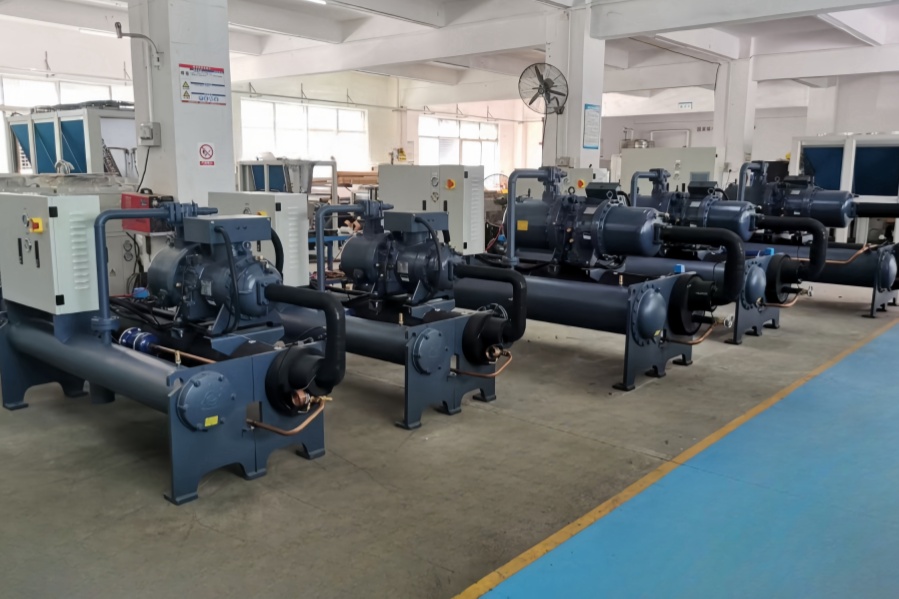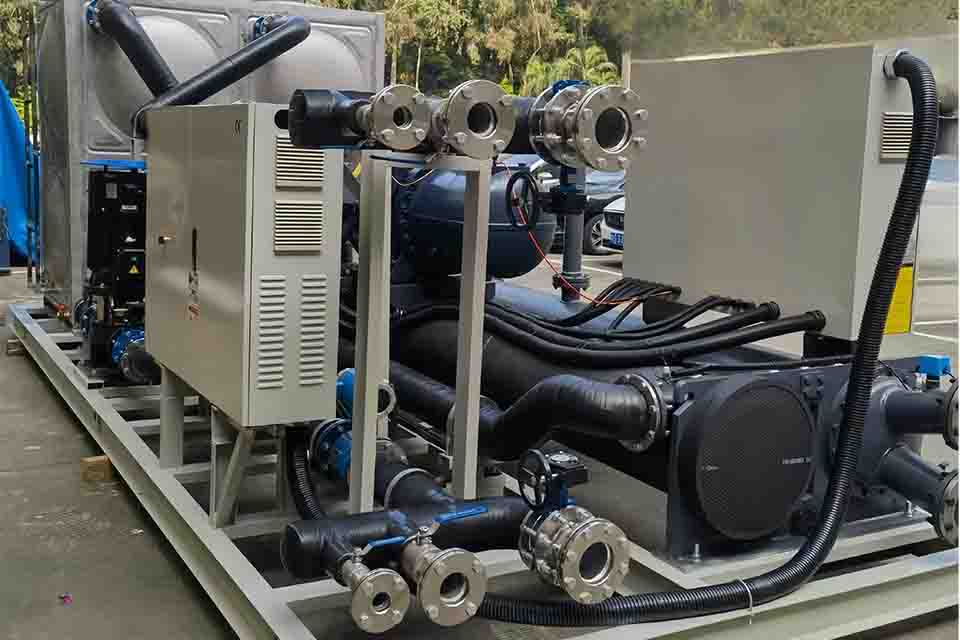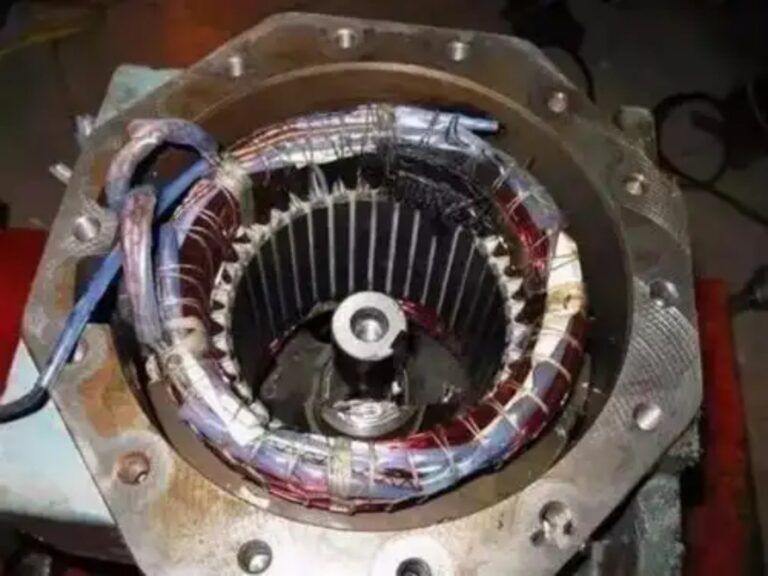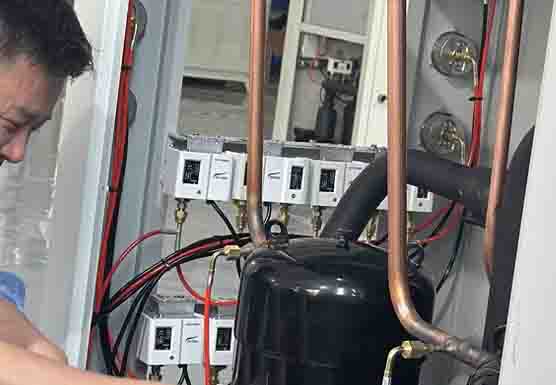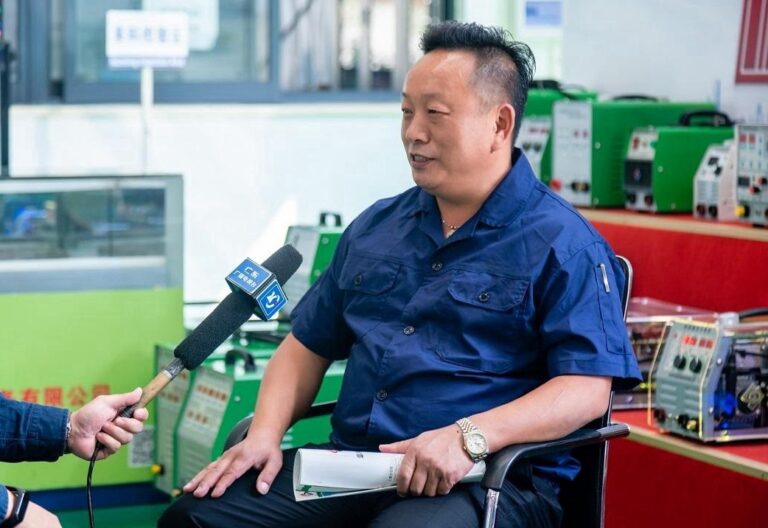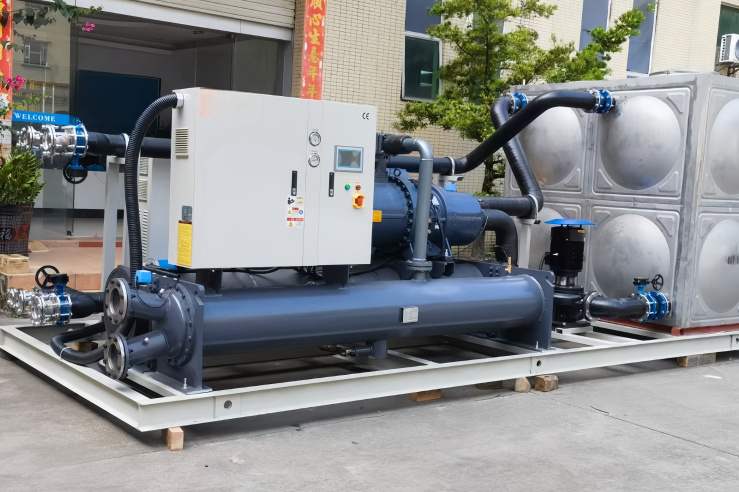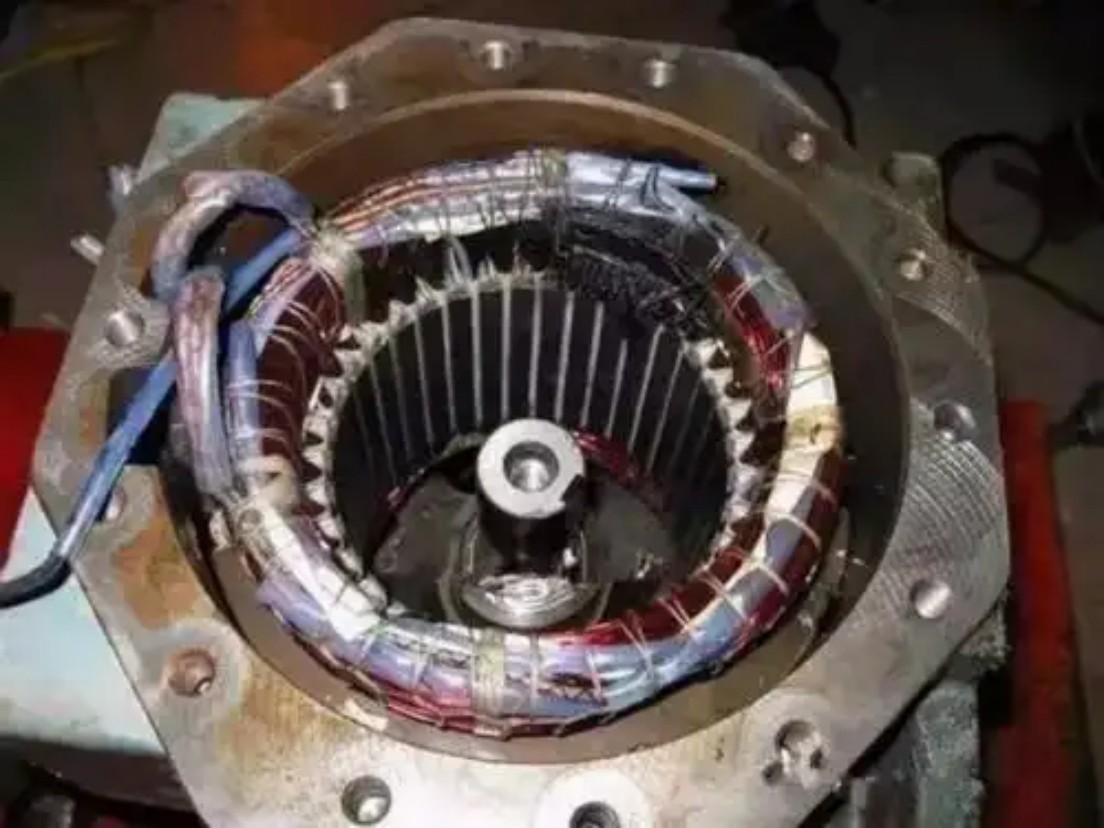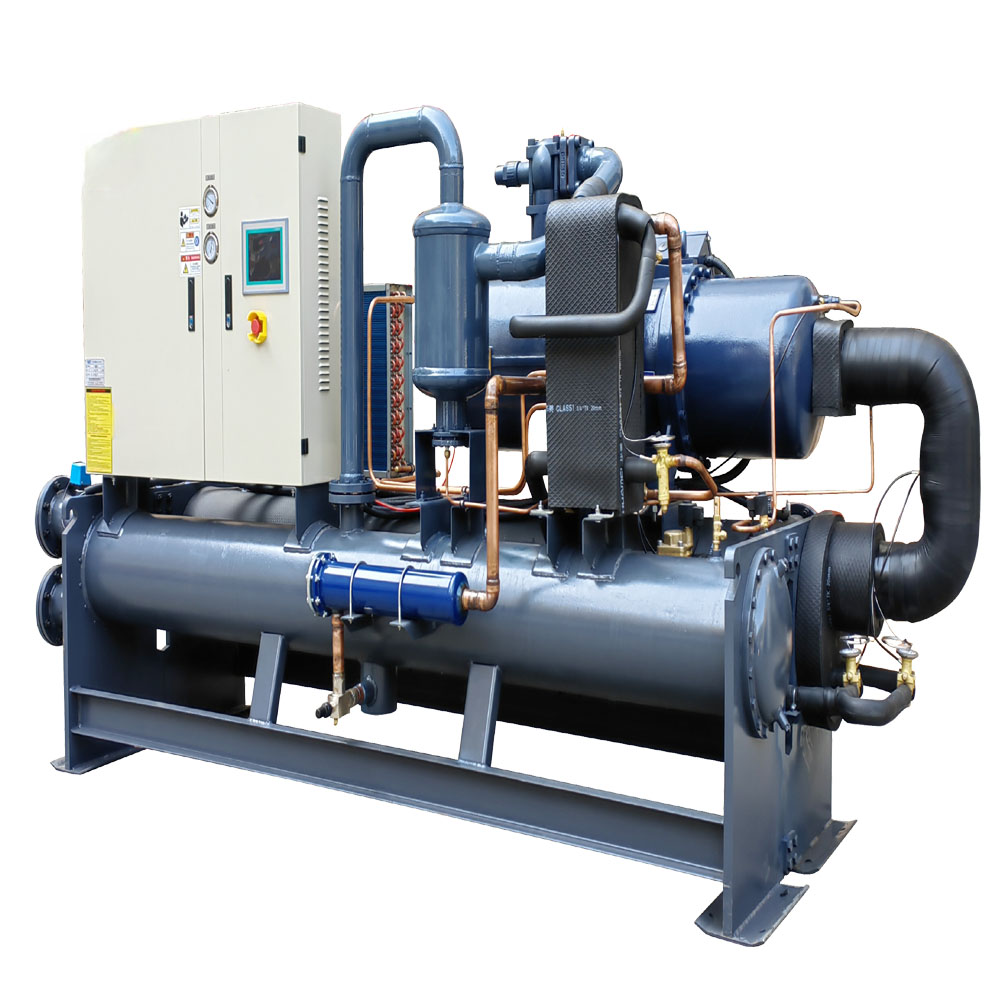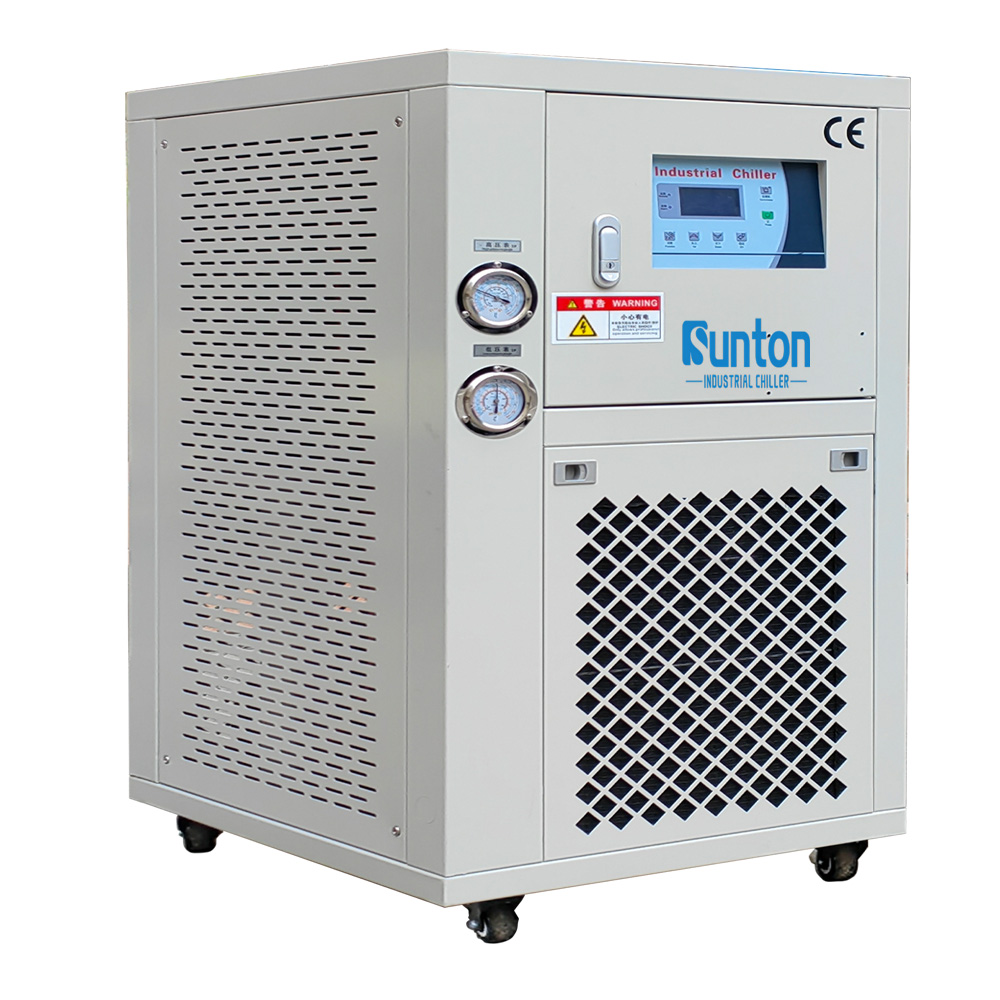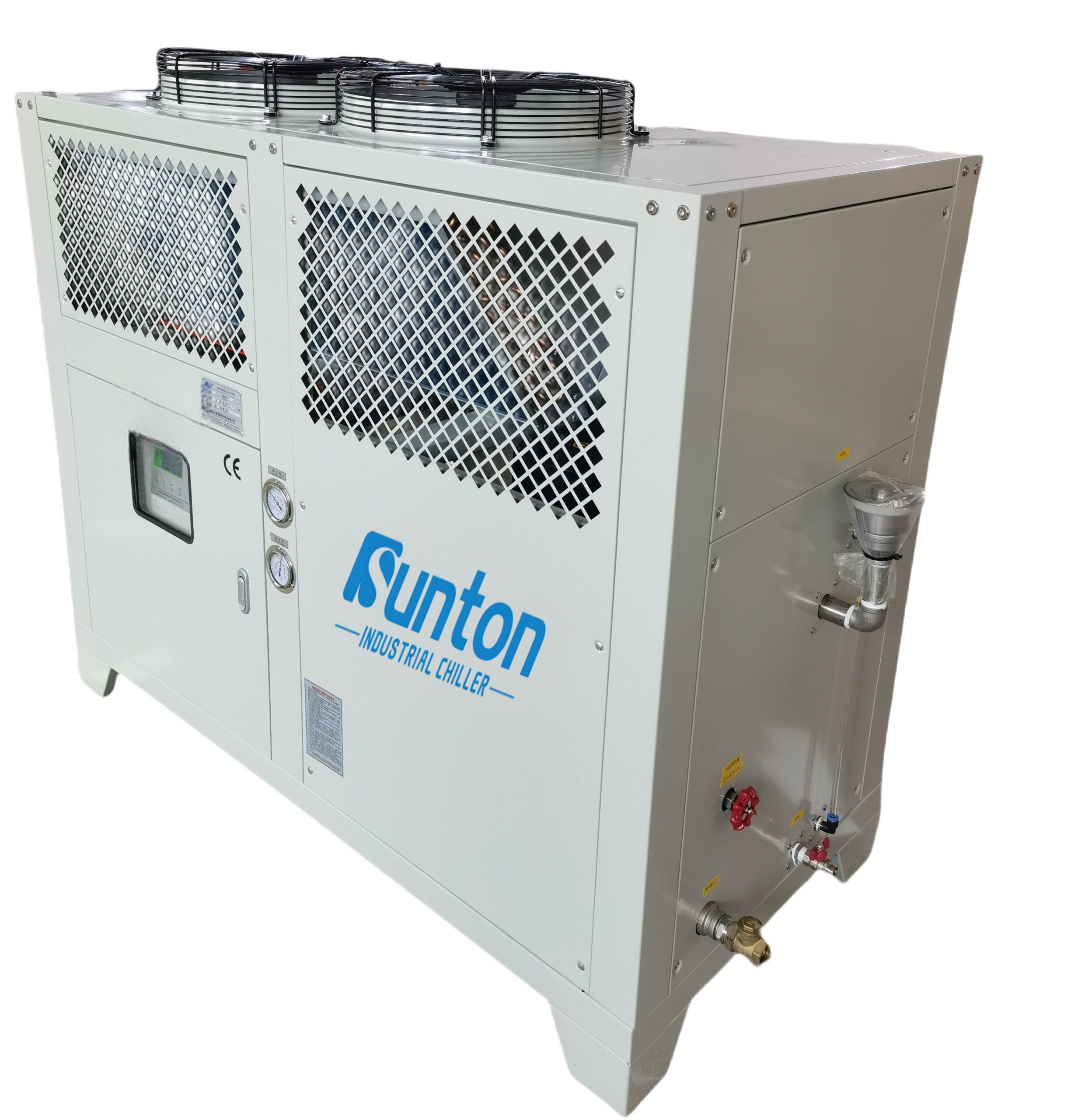-
Dalingshan Industrial Guangdong
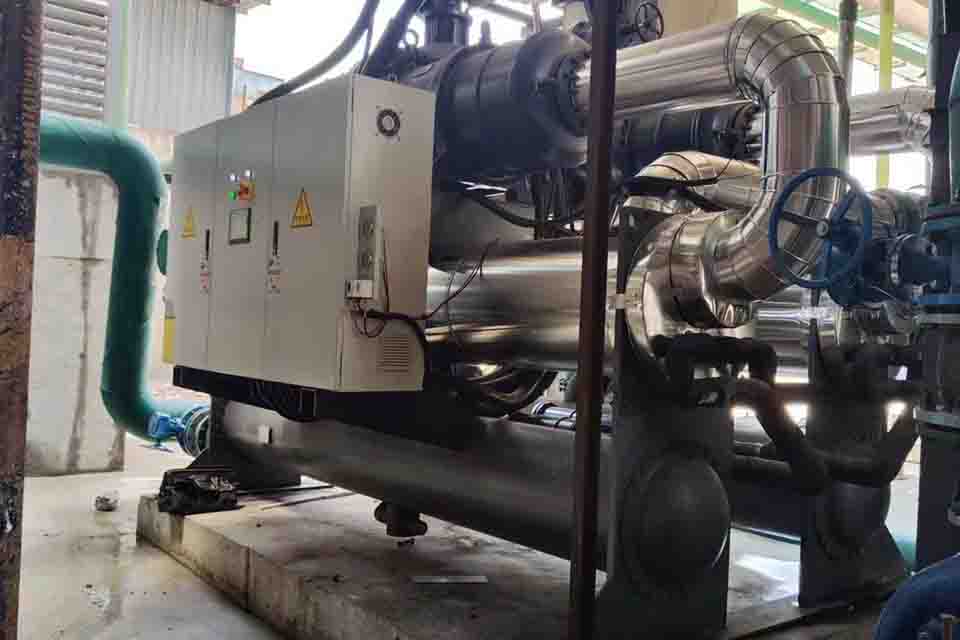
8 Factors to Consider When Renting or Buying an Industrial Chiller
Selecting the right industrial chiller—whether to rent or buy—requires careful evaluation of your facility’s needs. Below are the critical factors to guide your decision:
Daftar Isi
Details We Should Know Before Renting or Buying an Industrial Chiller
1. Cooling system application & Industry Requirements
- Tailor to Use Case:
- Proses Pendinginan (e.g., pharmaceuticals, food processing,plastic injection mold): Requires precise temperature control for product integrity.
- Commercial HVAC: Focuses on climate control for large buildings.
- Industrial Processes: Demands high-capacity cooling for machinery or manufacturing.
- Match Technology: Choose between air-cooled, water-cooled, or portable chillers based on application intensity.
2. Industrial chiller size, space, and location
- Physical Constraints:
- Ensure the chiller’s dimensions fit your facility layout without obstructing workflows.
- For outdoor installations, prioritize weather-resistant models.
- Environmental Adaptability:
- Indoor units may need enhanced ventilation; outdoor units must withstand ambient temperature fluctuations.
3. Water Chiller Safety and Compliance
- Hazardous Environments:
- Opt for explosion-proof chillers if operating near flammable materials.
- Regulatory Standards: Verify compliance with industry-specific safety certifications (e.g., ATEX, ISO).
4. Temperature Precision and Cooling Capacity
- Kisaran Suhu:
- Ensure the chiller can maintain your required range (e.g., sub-16°C for specialized processes).
- Thermal Stability:
- Advanced controls (e.g., variable speed drives) minimize fluctuations for sensitive applications.
- Kapasitas:
- Industrial chillers often exceed 1,000 tons of cooling power; match capacity to peak demand.
5. Fluid Compatibility and Chiller Maintenance
- Cooling Fluid Type:
- Use water, glycol blends, or specialized fluids based on corrosion resistance and thermal efficiency.
- Fluid Quality:
- Install filtration systems if using municipal water to prevent contamination.
- Biaya Pemeliharaan:
- Rental agreements often include servicing; purchased units require long-term maintenance planning.
HVAC vs. Chillers: Key Differences
- Definition & Scope
HVAC: A comprehensive system covering Heating, Ventilation, and Air Conditioning. It regulates indoor environmental comfort across residential, commercial, and industrial spaces.
Chillers: A specialized technology under the “AC” component of HVAC, designed for large-scale cooling.
- Purpose & Application
Household AC Units (e.g., window/split systems):
Cool small spaces (e.g., rooms).
Limited cooling capacity (typically above 16°C).
Chillers:
Serve high-volume, industrial applications (e.g., hospitals, power plants, refineries).
Deliver precise, powerful cooling (often exceeding 1,000 tons of capacity).
Capable of cooling below 16°C for specialized needs.
- Scale & Design
Size: Chillers are significantly larger and more complex than standard AC units.
Capacity: Built for continuous, heavy-duty operation over expansive areas.
- Role in HVAC
Chillers are a critical subset of HVAC systems, tailored for industrial demands. Standard AC units focus on smaller-scale, everyday cooling.
Summary:
HVAC is the broad framework for climate control, while chillers are high-capacity AC solutions for industrial and large-scale cooling. Chillers excel in power, precision, and scalability, unlike standard household AC units.
